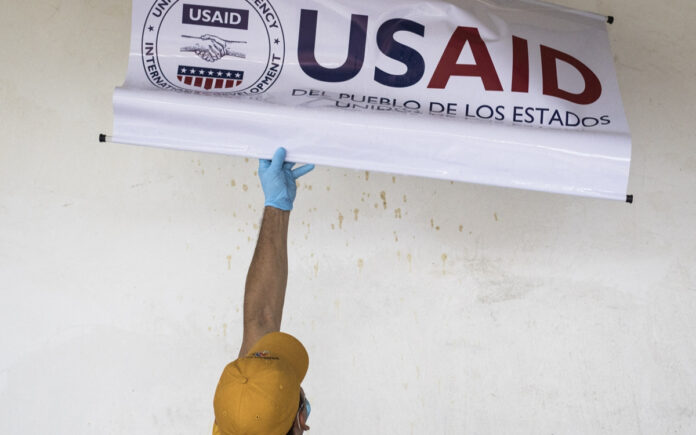London: Millions of dollars’ worth of contraceptives meant for some of the world’s poorest and most vulnerable populations are stuck in storage due to U.S. foreign aid cuts, and risk being destroyed if not redistributed soon, according to two humanitarian aid sources and a former U.S. government official.
The stalled stockpile—stored in warehouses in Belgium and Dubai—includes condoms, birth control pills, implants, and intrauterine devices (IUDs), with a total value of approximately $11 million. The contraceptives were initially intended for donation to low-income countries, primarily in sub-Saharan Africa, where access to reproductive healthcare remains extremely limited.
According to the sources, the backlog dates back to the Trump administration’s implementation of its “America First” foreign policy in February, when U.S. foreign aid spending on global health supply chains was sharply reduced. Since then, the U.S. government has stopped authorizing the shipment or donation of these contraceptives and is no longer covering delivery costs.
The U.S. Agency for International Development (USAID), which oversees the global health supply chain, has reportedly instructed its logistics contractor, Chemonics, to explore options for selling the unused products rather than distributing them as originally planned, two sources confirmed.
An internal USAID memo circulated in April warned that the contraceptives should be “immediately transferred to another entity to prevent waste or additional costs.” However, the U.S. State Department told Reuters that no final decision had been made regarding the stockpile’s fate, and it declined to comment on why the supplies remain warehoused or the broader impact of the aid cuts.
Chemonics, in response to Reuters, said it could not discuss USAID’s plans but emphasized its ongoing commitment to working with partners to deliver lifesaving aid and support the U.S. government’s global health initiatives.
Also Read | Diddy’s Former Partner Describes Pressure to Join Condomless “Freak Offs”
The unused contraceptives represent just under 20% of the total annual supply purchased by the U.S. for global distribution, according to the former USAID official. They were largely earmarked for women and girls in crisis zones or conflict areas, including refugees and survivors of sexual violence, where reproductive health options are scarce. Delays in distribution are now putting the products at risk of expiration, the sources added.
“There’s been a frustrating lack of direction from Washington,” one source said, noting that each passing day increases the likelihood that the supplies will be wasted. One option under consideration is destruction, which would cost several hundred thousand dollars and contradict the initial humanitarian intent behind the purchase.
Also Read | Sanctions, Delays Hamper Russia’s Efforts to Rebuild Struck Bomber Force
Karen Hong, chief of supply chain for the United Nations Population Fund (UNFPA), highlighted the urgency of the situation. “We cannot dwell on an issue for too long; when urgency and clarity don’t align, we have to move on,” she said, adding that UNFPA is now developing alternative plans to address reproductive health gaps left by the undelivered stock.
Experts warn that the interruption in contraceptive distribution could have far-reaching consequences—including increased rates of unwanted pregnancies, unsafe abortions, and the spread of sexually transmitted infections like HIV—particularly in regions where health systems are already under severe stress.



